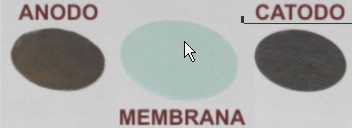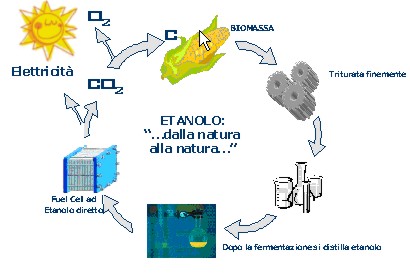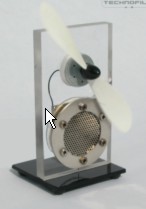The cooperation between the institute of Chemistry of Organometallics (ICCOM-CNR) and IdeLab srl has given rise to a new family of catalysts, named PlatinosinteticoTM, projected and evolved through innovative nanotechnologies. PlatinosinteticoTM anodic and cathodic catalysts are able to reproduce, and in many cases, improve, the catalytic activity of platinum in electrodes useable in many fuel cells types.
PlatinosinteticoTM catalysts contain nanometric and subnanometric iron, nickel, cobalt particles, alone or arranged in binary and ternary combinations, and supported on conductive materials. The starting materials such catalysts require are largely available, avoiding the limitations imposed by the scarcity and high price of platinum. In addition, these new catalysts show an enhanced activity in comparison with direct methanol cells working with platinum, even with a much lower metal loading. Furthermore, great efficiency has been achieved by the employment of these catalysts in cells fed with other alternative fuels in water solutions, like ethylene glycol and ethanol, such that methanol power yield has been broadly exceeded.
PlatinosinteticoTM catalysts managed to overcome the second greatest restraint to the commercial development of fuel cells, i.e. the use of a safe fuel, with a broad distribution net, not toxic, and last but not the least, renewable like ETHANOL.
Ethanol is a safe fuel, or better a "hydrogen vector", and a completely renewable one. That is why Technofil cells with PlatinosinteticoTM have been awarded in 2003 by Lombardia Region and Legambiente, the prestigious prize "Innovation friend to Environment". The foundation Altran has selected the project "ethanol fuel cells", proposed by Leonardo da Vinci museum of Science and Technology, among the first six participants in a competition which counted more than 164 challengers.
Ethanol is already a product that can be found almost everywhere. Millions of tons are being produced out of vegetal biomasses fermentation, and can be purchased in a quite pure form in any supermarket. In fuel cells based on Platinosintetico, ethanol will be used in water solutions at a concentration ranging from 5 to 25 percent, similar to that of a strong wine.
PlatinosinteticoTM technology is based on the preparation of clusters of iron, cobalt and/or nickel, smaller than one nanometre. This means that few atoms are bunched together, at most 7 or 8, giving birth to a structure that is already extremely reactive to a vast range of fuels (like ethanol) at ambient temperature and pressure, as it is required by the only development we can afford at the present time, i.e. the sustainable one.
By now, there are no remarkable commercial applications for fuel cells, and a large scale employment by customers and constructers is not likely to be realized until the problems of both the fuel and the shortage of platinum will remain unsolved. PlatinosinteticoTM technology will hopefully succeed in promoting a fast diffusion of low-temperature fuel cells through the realization of safe, ecological, economical and noble metal-free devices.
Immagini:






